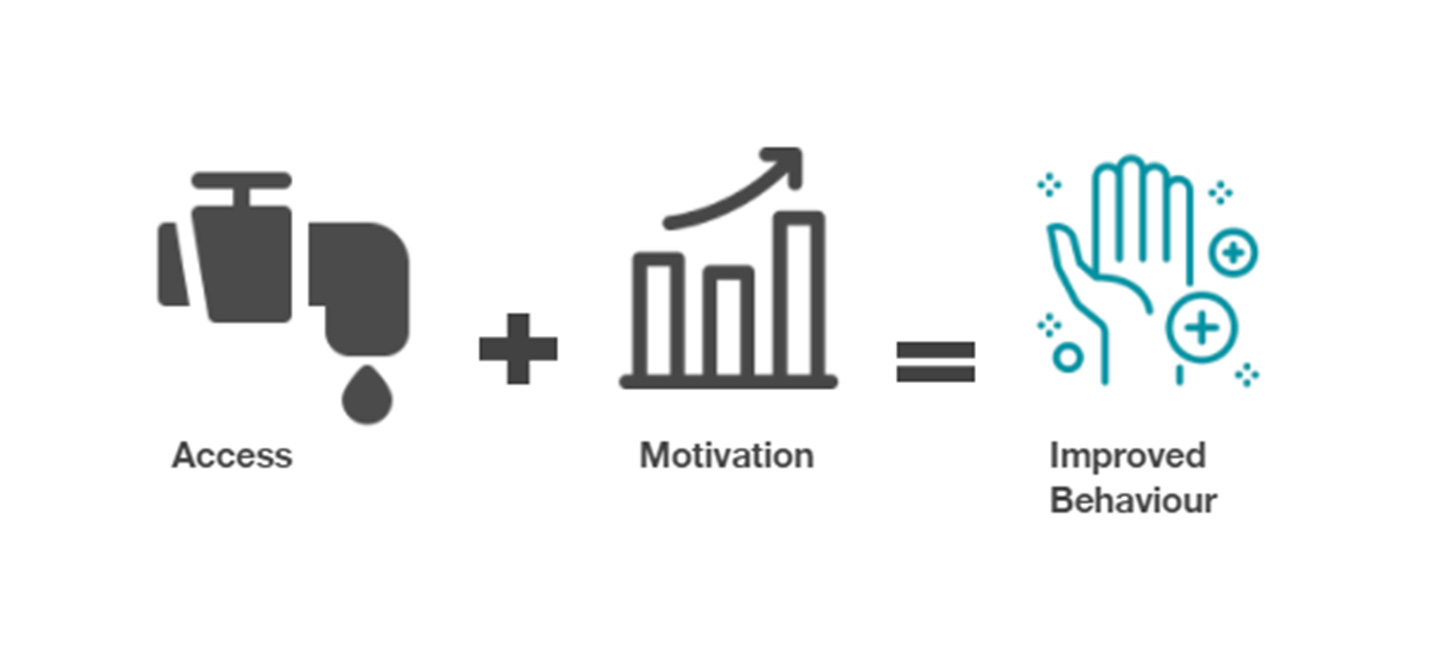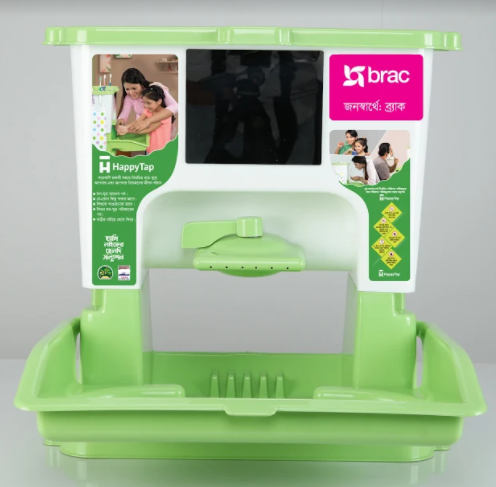Reading Time: 4 minutes
Can increasing access to portable handwashing devices and soap in people’s homes lead to improved hand hygiene? Here is what we found out.
Handwashing with soap has long been known as one of the most cost-effective methods to prevent infectious disease. At the advent of the COVID-19 pandemic, global experts identified that this key habit can reduce the risks of COVID-19 transmission. However, it still remains unpractised due to manifold barriers, including factors such as lack of sustained access to piped water and dedicated facilities for handwashing.
In Bangladesh, 36 million people do not have access to clean water at home. Of those households that do, only 57.6% are estimated to have soap at the place of handwashing. A survey with more than 320,000 people revealed that almost 45% of respondents wash their hands less than five times a day.
Read More: How to make hand hygiene more accessible and inclusive
All this contributes to the grim reality of the devastating impact of the ongoing pandemic, where not enough people are adhering to recommended safe-hygiene practises. The FCDO-Unilever Hygiene and Behaviour Change Coalition (HBCC) partnered with BRAC to change this. Now, access to pertinent hygiene information and to hygiene facilities is being increased, so that more people adopt healthier habits and remain safe.
To get people to adopt improved hand hygiene practises, a simple approach was taken – providing access to free soap and water, and motivating them to wash their hands.

Towards fulfilling that goal, 1,000 handwashing stations were installed in public hotspots around the country. Currently, different nudges are being tested to see what works best to get people to wash hands more frequently.
On the household level, we partnered with social enterprise HappyTap, who have worked across Asia and Africa to develop a purpose-built portable device that makes handwashing convenient to adopt.
In August 2020, BRAC and HappyTap joined hands to user-test the devices for the first time in Bangladesh. Over the course of one month, two rounds of observational surveys were conducted on 24 low-income households across the Khulna division.

A HappyTap device comes with a built-in soap tray, a mirror on the face of the device, a drainage pipe for draining used water, as well as other features meant to nudge usage
At the beginning of the research, the households’ usual handwashing practises were taken note of. Most families used communal tubewells or local ponds to wash hands, leaving them vulnerable to cross-contamination from shared users. “We wash our hands at the pond, and wash our clothes and bathe there too,” shared one respondent. “We bring water from the pond in a bucket, and use it for household purposes and handwashing after eating.”
When asked ‘How long should one wash their hands for?’, another respondent replied, “Maybe a minute?”. The same respondent, when asked to demonstrate their regular handwashing practices, was seen washing their hands with soap for just over 10 seconds.
These showcased a gap in awareness when it came to standard hand hygiene practises, and limited access to convenient handwashing solutions.
Read more: How do we get more people to wash hands?
HappyTap devices were provided to the 24 households after the completion of the first survey. The recommended way to wash hands was demonstrated for them, key information on the recommended times for handwashing (after using a latrine, before and after meals, etc) was also shared.
After a month, a second survey was run, that requested respondents to demonstrate handwashing using the HappyTap devices. It was found that not only did every observed respondent wash their hands for over 20 seconds, but the overall average time for handwashing also went up by two seconds.

Image of posters that have been put on public handwashing stations denoting the five recommended steps for handwashing
The households displayed an affinity towards their HappyTap devices, by utilising the different features of the device – the soap tray for storing soap at the place of handwashing, the side pockets of the device to store toothbrushes, the mirror on the front of the device for combing hair, etc. All surveyed users expressed interest in using the device, while almost three-quarters of them stated they cleaned the device with soap and water at least once every three days, which further indicated enthusiasm.
“Previously, we would wash our hands by the tubewell outside the house. Having a HappyTap device now allows the six members of my family to wash our hands with soap and more regularly inside our house,” said a respondent.
“My five-year-old son has picked up frequent handwashing,” a mother shared enthusiastically. “He helps me clean and drain the device, and he even monitors if everyone else is washing their hands, especially if they are coming home from outside.”
Read more: Addressing the impact of COVID-19 on infants and young children
Not only did all households share they had a positive experience with the device, but over 90% of them said they would recommend it to their neighbours and kin.
Based on the positive feedback from the pilot, BRAC and HappyTap are strengthening the partnership to continue increasing access to households and institutions in key intervention areas, to enable people to avail free soap and clean water for handwashing.
An evaluation is currently being run to measure whether handwashing practices (both in terms of frequency and thoroughness) indeed improve in households across contexts due to the presence of the device.
By May 2021, it is planned to outfit over 2,000 households with HappyTap devices and an attractive poster bearing information on the recommended steps and times for handwashing – whether hand hygiene habits actually improve as a result of increased access and motivation will be understood only at the end of the evaluation.
Shafqat Aurin is an Interaction Designer with BRAC Social Innovation Lab.
Nimmi Hamid is a Policy Analyst with BRAC Advocacy for Social Change.





